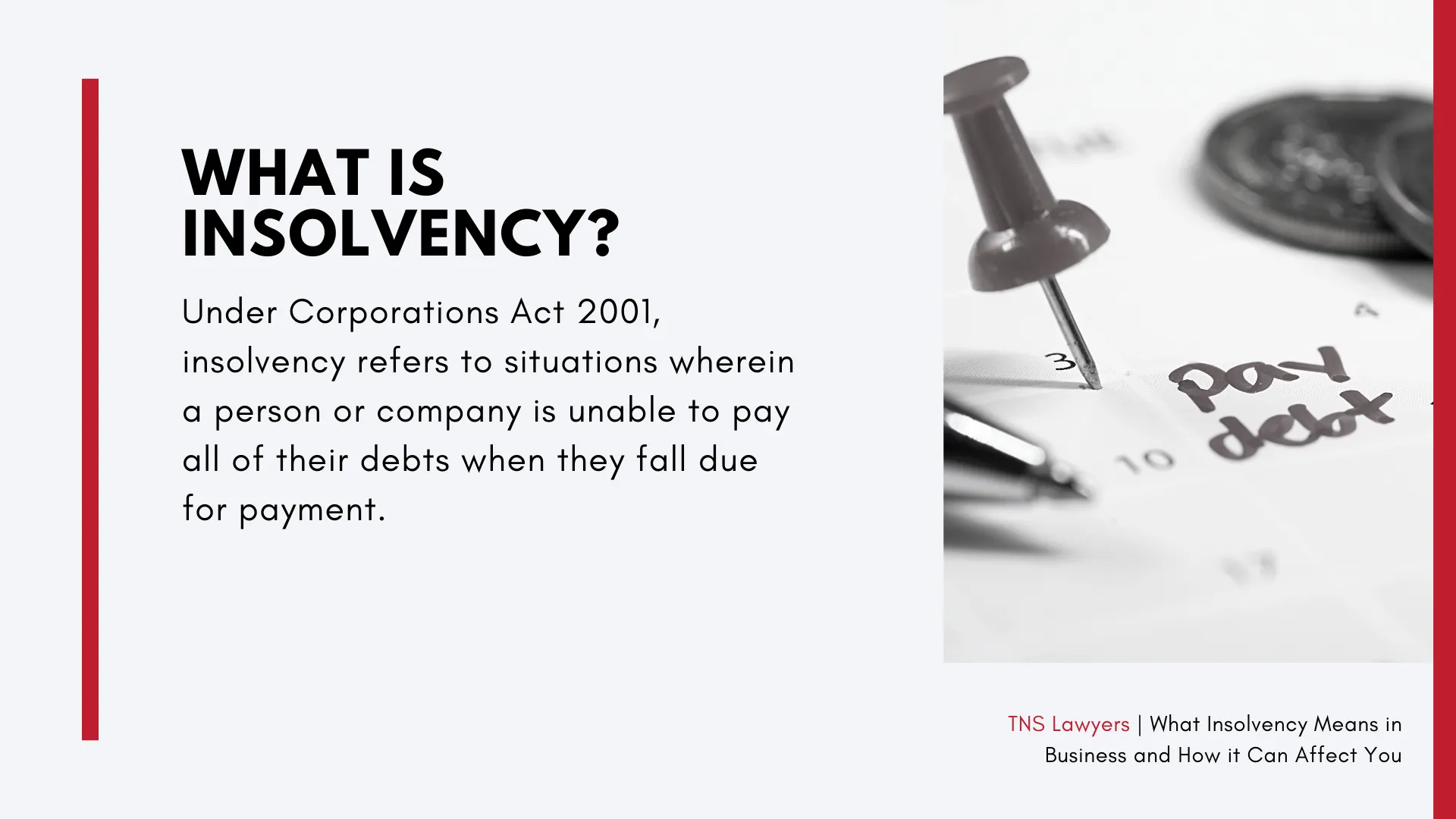What Does Insolvency Practitioner Do?
Table of ContentsAn Unbiased View of Insolvency PractitionerMore About Insolvency PractitionerInsolvency Practitioner Things To Know Before You Get ThisInsolvency Practitioner for Dummies5 Simple Techniques For Insolvency PractitionerWhat Does Insolvency Practitioner Do?Insolvency Practitioner - The Facts
Bankruptcy is when obligations are above the value of the business, or when a borrower can not pay the debts they owe. A company can end up being financially troubled due to a variety of circumstances that cause inadequate capital. When encountered with bankruptcy, a service or individual can contact financial institutions directly and restructure financial debts to pay them off.Bankruptcy can lead to insolvency proceedings, in which lawful action will certainly be taken versus the financially troubled person or entity, and possessions might be liquidated to settle arrearages. Company owner may get in touch with lenders directly and restructure financial obligations into more manageable installments. Lenders are typically amenable to this method due to the fact that they want to be settled and avoid losses, even if the repayment gets on a postponed timetable.
Excitement About Insolvency Practitioner
The owner produces a proposal detailing exactly how the financial debt may be restructured using price decreases or various other prepare for assistance. The proposal shows lenders exactly how business might create sufficient cash circulation for profitable operations while paying its debts. Commonly, a forgiven financial debt may be considered income by the Irs (IRS).

The 10-Minute Rule for Insolvency Practitioner
When procedures discontinue, so does the firm's revenue (Insolvency Practitioner). Some companies end up being financially troubled since their products or solutions do not develop to fit consumers' changing demands.
Expenses surpass profits and costs remain overdue. Cash-flow insolvency takes place when a business has the possessions to cover their financial debts but they are in the wrong form, such as real estate rather of liquid funds. Balance-sheet bankruptcy, on the other hand, indicates an absence of assets in any kind of kind to cover debts.
The internal revenue service states that a person is insolvent when the complete liabilities surpass overall possessions. A personal bankruptcy, on the other hand, is a real court order that depicts just how an insolvent person or organization will repay their financial institutions, or exactly how they will offer their possessions in order to make the settlements.
Facts About Insolvency Practitioner Revealed

Recognizing the aspects that can bring about insolvency, such as overspending, can aid you prevent bankruptcy and its consequences.
The Insolvency Practitioner Statements
It is popular that directors and police officers of corporations (and supervisors of minimal liability companies) owe fiduciary obligations to their companies and their shareholders (or participants). These fiduciary commitments are specified by state laws and, though there are variations from one state to another, they usually consist of a task of commitment and a responsibility of care.
The task of care requires directors and policemans to exercise diligence, to make informed choices, and to act in good faith so that their activities remain in the finest rate of interest of the company. Beyond the extent of this discussion, some states allow these obligations to be restricted either by so noting in the organizational records or complying with various other requirements.
Fascination About Insolvency Practitioner
Many states define insolvency in two methods( 1) when a firm's liabilities end up being better than the amount of its properties or (2) when the company ends up being not able to pay its financial debts as they come to be dueand embrace both meanings (Insolvency Practitioner). The change in responsibilities takes place due to the sites fact that when a business is financially troubled, there is no worth in the firm get more past that owed to the firm's creditors so that the equity holders no more have an economic stake in the company
Beware about giving investors preferential therapy at the cost of creditors (e.g., licensing and funding a returns or a supply redemption). Beware regarding advantageous treatment in between courses of investors. Clear up initiatives to find out all the facts before taking a details course of action; directors ought to really believe that any type of choices made are in the finest interests of the firm in its whole this (i.e., decisions will be evaluated in hindsight due to the impact of such activities on the corporation).
In any type of insolvency or bankruptcy case, repayments made to particular creditors at the expense of various other financial institutions can be clawed back, especially if there is some connection in between the firm and the creditor. Consider suggesting at an annual investor meeting (or any type of various other meeting of shareholders) a resolution attesting that all previous organization decisions and activities taken by the supervisors and policemans of the corporation were taken in great faith after an exercise of sensible treatment.
Excitement About Insolvency Practitioner
Fully reveal any individual or service partnerships with celebrations on the various other side of transactions involving the company to stay clear of the look of a dispute of interest. In reviewing possible fund elevating deals or a sale of properties of the struggling company, understand that these deals may be looked at later in light of any type of succeeding development of supervisors' fiduciary responsibilities to include lenders.